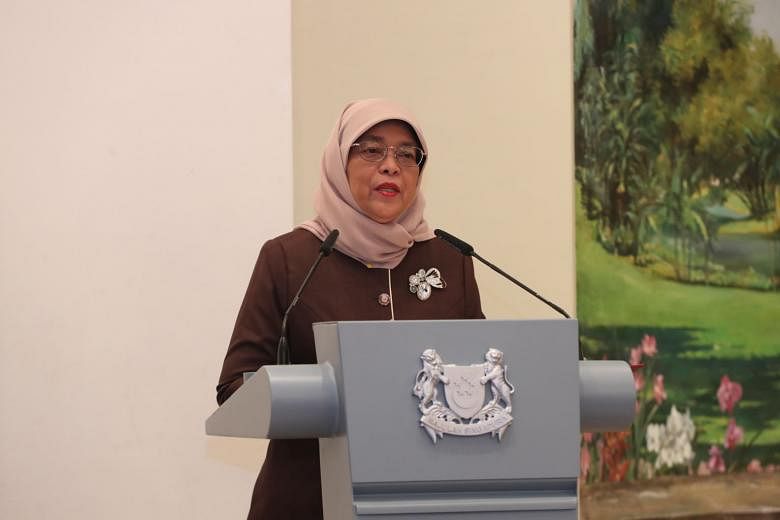The President's Office has made a police report over a fake e-mail inviting recipients to a dinner event with President Halimah Yacob, Prime Minister Lee Hsien Loong and Cabinet ministers.
Madam Halimah said in a Facebook post yesterday that the e-mail about a supposed dinner event on March 10 is a phishing hoax.
Those who receive the e-mail are told by scammers to download an invitation letter via content-sharing platform SharePoint and to key in their e-mail passwords.
"I strongly urge all Singaporeans to remain vigilant against online exploits and scams, and to familiarise yourselves with tell-tale signs of a phishing e-mail, so that we do not fall prey to these malicious cyber threats," she wrote.
The police confirmed on Thursday that a report was lodged on the matter and that they are investigating the case.
Scammers have sought in other schemes to use images of - as well as make up quotes from - the President and ministers to trick people into supplying their credit card or bank account information.
A recurrent scam involves fraudulent webpages quoting the likes of Madam Halimah, Prime Minister Lee and Senior Minister Tharman Shanmugaratnam purportedly in support of bitcoin trading schemes.
Readers are encouraged by the scammers to take advantage of the get-rich-quick opportunity by registering on the website with their personal details, including name, e-mail address and credit card information.
In August last year, President Halimah alerted her Facebook followers to such scams, urging them to be cautious of these "false and misleading" websites.
Mr Aaron Bugal, a global solutions engineer for Sophos, which specialises in cyber security, told The Straits Times earlier that such scams prey on the tendency to "trust a name we know and therefore believe the information we are given is true and act upon it".
"This could lead to many disastrous outcomes such as identity theft, further financial fleecing, or worse, bankruptcy," he added.
He also said supplying personal information on these sites means it is "no longer your information".
The police said earlier this month that scammers cheated victims of more than $160 million last year, marking a 50 per cent surge in such cases from 2018 and pushing the overall crime rate to its highest in nine years.
E-commerce scams were among the 10 most common scams last year, with people tricked on various digital platforms. Other common scams include loan scams and credit-for-sex scams.


